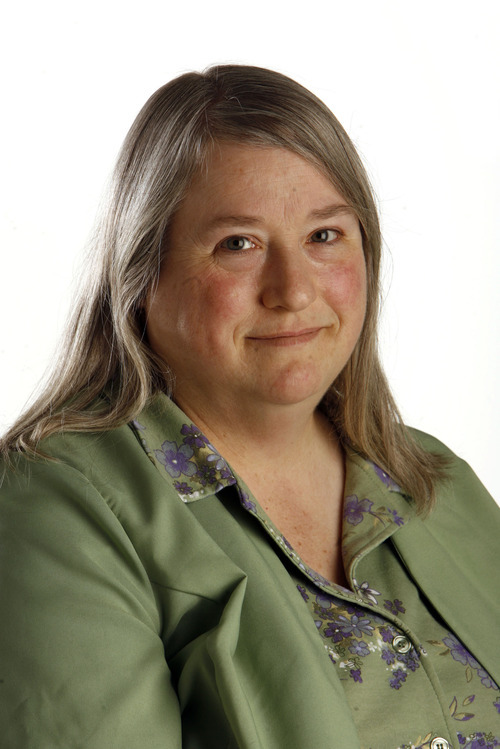This is an archived article that was published on sltrib.com in 2012, and information in the article may be outdated. It is provided only for personal research purposes and may not be reprinted.
Hortense McQuarrie, the redheaded granddaughter of early St. George Mayor Robert Gardner, married Floyd Odlum, a struggling Salt Lake attorney, in about 1915. After a year of marriage and the birth of Stanley, the first of their two sons, Floyd gave up his failing corporate practice for a position as a clerk in a Manhattan law office.
The family's first day in New York was inauspicious: While Floyd was introduced to his new firm, Hortense passed the hours in Grand Central Station, with a screaming 3-month-old baby and all the family's possessions: a single suitcase and two boxes of books.
Five years later, Floyd was vice president of his principal corporate client. He then founded his own investment company.
Weeks before the 1929 stock market crash, Floyd sold half of his company, pocketing $14 million as virtually everyone else was losing everything. He made other canny moves, and, by 1933, he was one of the 10 wealthiest Americans.
In 1934, Floyd found himself the owner of the high-end women's clothing store Bonwit Teller, in a 12-story building on Fifth Avenue. He hadn't wanted the failing business — it came as part of a package deal — and he told Hortense he didn't know what to do with it. He would get nothing from the bankrupt business if he sold it, but if he kept it, he risked losing even more. Why weren't women shopping there, he wondered? Would Hortense visit the store and see if she could find the problem?
For several weeks Hortense wandered around the store, discovering why it did not appeal to her and reporting to Floyd.
Move the hat department to the ground floor, she said. Women walking through the store will try on a hat, and if they find one they like, they'll buy other things to go with it. The change was made, and the store's millinery business tripled.
Store clerks didn't treat Hortense as well when she paid cash as when she used a charge account. She investigated and found that clerks thought cash customers were one-time shoppers, while credit meant repeat business. Why not treat cash customers well enough to make regular shoppers out of them? Hortense asked. The store began sending thank-you notes to cash shoppers. Many of them became loyal customers, citing those notes as a reason for their return.
By 1934, Hortense was president of Bonwit Teller. She turned the complaint department into a customer service department, instructing clerks to concede every possible conflict with courtesy, which would cost money in the short term, she said, but bring in more business over time.
She instructed saleswomen never to ask a customer how much she wanted to spend. Instead, clerks should offer three flattering possibilities at various prices and let the customer indicate her preference without embarrassment.
Hortense introduced countless little services: The store's doorman always had a pocket full of coins for customers to make change for taxi drivers. Saleswomen offered hairnets to customers trying on dresses.
Clerks were always ready with needle and thread to repair loose buttons or drooping hems — not on Bonwit Teller merchandise, but on clothing worn into the store by customers.
Lunch was offered in the fitting rooms and hair salon. A desk staffed by a secretary was available to customers leaving messages for friends.
Hortense's instincts paid off royally. Bonwit Teller's business doubled in her second year as president and tripled in her third. She had become a wealthy woman in her own right before she stepped down as president in 1940 and then as head of the board in 1944.
"I want to go back," she said, "and be what I really am — just the typical customer who has found a store she loves to shop in."
Hortense didn't forget her St. George roots. When residents approached her for help in housing pioneer relics, she financed construction of the McQuarrie Memorial Museum and spoke at its 1938 dedication.
Hortense McQuarrie Odlum died in Indio, Calif., in 1970.
Ardis E. Parshall is a Utah historian who welcomes feedback from readers. She can be reached at AEParshall@aol.com.



